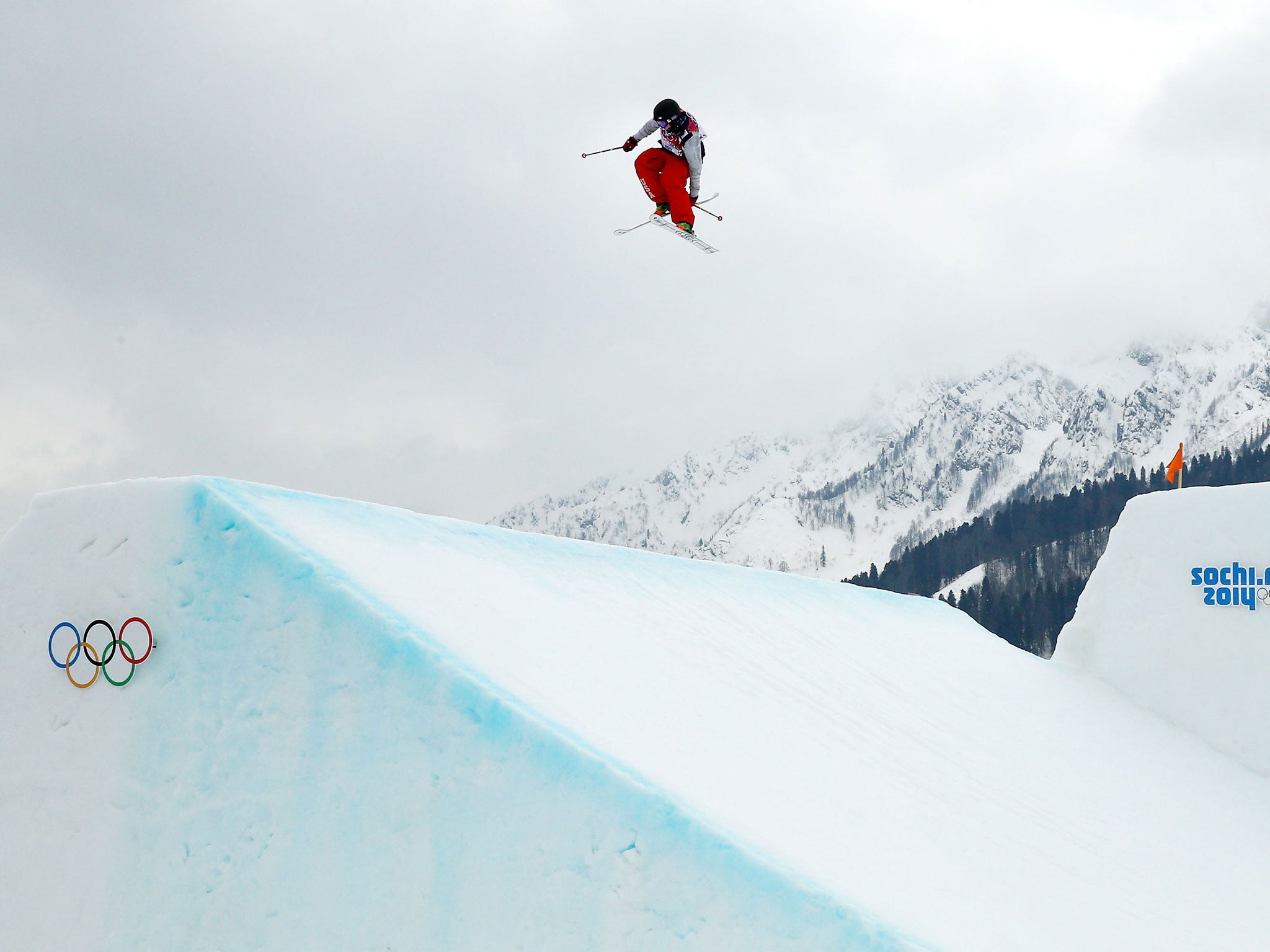Winter Olympics 2014: 'Garbage' course is dangerous as snow melts away, however IOC allay fears despite temperatures set to increase in Sochi
Stored snow had been used for the earlier events with plans put in to place two years ago to cater for such problems as a lack of snow

The organisers of the Winter Olympics are facing mounting criticism over the state of the ski runs at Rosa Khutor as mild temperatures are creating mushy conditions – to the increasing irritation of competitors.
Temperatures in the mountains rose to 6C on Tuesday – warmer than Glasgow or Aviemore, Britain’s largest ski resort – and are forecast to climb even higher later this week. The organisers have begun distributing their reserves of stockpiled snow but denied that conditions were a problem. Yet it has become a common theme among the athletes.
The final practice run for this morning’s women’s downhill was cancelled and frantic repairs were required on the half-pipe course before competition could proceed, with chemicals used to ensure the snow stayed frozen.
The state of the half-pipe course has been an issue since day one of the Games as mild temperatures have led to soft, slushy snow. “It’s a little dangerous,” said Hannah Teter, the American who has won medals at the last two Games. “I’ve seen more people fall than I saw all season. It’s dangerous because it’s crappy.”
The Americans were noticeably critical, with Danny Davis calling the half-pipe course “garbage”. “It’s a bummer to show up to an event like the Olympics and not have the quality of the half-pipe match the quality of the riders,” he said.
An Australian coach described the half-pipe course as “very shit”. The freestyle skiers joined in, with a number of the slopestyle finalists complaining about the mushy conditions on their course.
The International Olympic Committee and the organisers sought to play down the problems. An IOC spokesperson pointed out that no events have been cancelled but, with 11 days of skiing and snowboarding remaining and the forecast being for temperatures of up to 11C in the mountains by the end of the week, they face an anxious few days. It has not snowed in the mountains since before the Games.
“The next few days will be a little warm, but not unbearable,” said an IOC spokesperson. “There is always a problem when it is a little bit warmer. There is no problem at all with the half-pipe, it is just that these are dynamic, living fields of play. It is a little warm and that is causing one or two problems, but things are running to schedule.”
The organisers made conflicting statements. Dmitry Chernyshenko, chief executive of Sochi 2014, denied that any of the 700,000 cubic metres of snow stockpiled last year have been used, saying: “We don’t need it.”
But Aleksandra Kosterina, director of communication for Sochi 2014, said extra snow had been spread on the slopes. “I cannot tell you how much,” she said. “I mean I don’t know the specifics but I know that we did. We had very warm temperatures last year and we managed to have all of the events that were planned, more than 22 international events.
“We had one competition when the athletes actually enjoyed the weather by the sea and some of them ventured to swim, the weather was so great for everyone.”
In fact, this time last year, a snowboard and freestyle skiing World Cup, doubling as a test event, was cancelled “due to the lack of snow and continuous warm and rainy weather conditions”.
The Games will not run out of snow, such is the amount stockpiled, but as well as denying the athletes conditions appropriate with competing in an Olympics, the pinnacle of their career, it underlines the folly of building this ski resort from scratch at huge cost in an area of the Caucasus Mountains that lacks regular snowfall. With a total bill of $51bn (£31bn) this is the most expensive Olympics ever – the new road the organisers had to build to satisfy the International Olympic Committee cost $8bn alone. It runs alongside a long-existing road to the mountains.
The route up to the Extreme Park and the Alpine Centre, the venues for the skiing events, is dotted with military lookout posts. The camouflage covering of white sheets, and the soldiers’ white overalls, look incongruous among the swathes of brown, broken ground – the snow is limited to patches and its presence has reduced noticeably over the last few days.
It is not the first Games to suffer such problems – four years ago in Vancouver, the organisers had to ship in huge quantities by truck and helicopter from the Rockies before the Games began.
Join our commenting forum
Join thought-provoking conversations, follow other Independent readers and see their replies
Comments
Bookmark popover
Removed from bookmarks